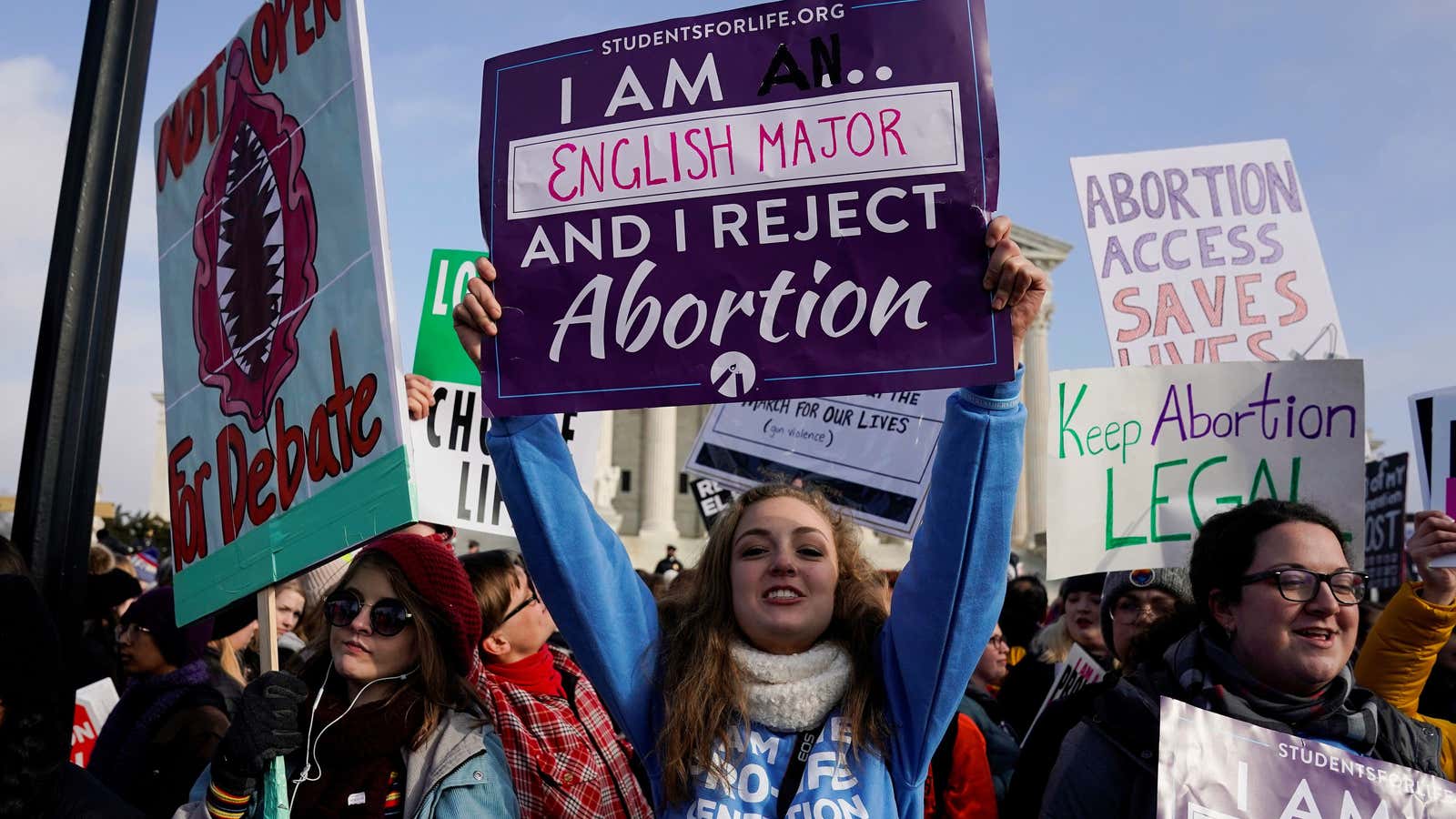Donald Trump used his 2019 State of the Union speech to address an issue that has moved back to center stage in American politics in the past two weeks—abortion.
Trump once again sought to making the most of an easy opportunity to court conservative Americans. And once again, Trump didn’t ground his views in science or the reality of how abortions happen.
Here are his remarks on abortion last night (Feb. 5) that warranted fact-checking:
Lawmakers in New York cheered with delight upon the passage of legislation that would allow a baby to be ripped from the mother’s womb moments before birth.
New York state’s new abortion law in no way allows such a scenario. The law only allows abortions up to term if it’s “necessary to protect the [mother]’s life or health” and in “absence of fetal viability.” This means such an abortion is only allowed when the fetus is definitely not going to survive birth or the remainder of the pregnancy.
These are living, feeling, beautiful babies who will never get the chance to share their love and dreams with the world. And then, we had the case of the governor of Virginia where he basically stated he would execute a baby after birth.
Unfortunately, fetuses who are not viable would never be able to share their love and dreams with the world, as they wouldn’t survive. The disgraced governor of Virginia, in his remarks defending a similar law to New York’s, spoke about a very different scenario from the “execution” of a baby after birth: The situation he described is the one in which a newborn is too deformed to survive or otherwise nonviable.
To defend the dignity of every person, I am asking the Congress to pass legislation to prohibit the late-term abortion of children who can feel pain in the mother’s womb.
“Late-term abortion” isn’t a scientific term, as it doesn’t refer to a specific gestation week or trimester of pregnancy. Further, the fetus’s ability to feel pain is a reference used when it comes to stating opposition to abortion rights—since science isn’t in agreement as to when in a woman’s pregnancy fetuses can feel pain, or even how.
